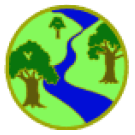Geography
We recognise the need to develop strong, meaningful schema in Geography. To achieve this, our geography curriculum is based around seven key knowledge categories: Location, Physical features, Human Features, Diversity, Physical Processes, Human Processes and Techniques.
Children develop their schemas as they progress throughout school. Careful mapping of where children develop their knowledge in each of these categories allows teachers to build on previously developed schema. Research in cognitive science tells us that building on well-developed schema allows children to learn new knowledge more easily. We also recognise the importance of retrieval practice.
Children are provided with regular opportunities to retrieve previously learnt content in order to improve their strength of retrieval.
Click on the image to view the knowledge category mapping document for Geography.
We know that children are on a learning journey in geography made up of small, incremental steps. These steps are known as components of the curriculum. Our aim is to help children reach the different destinations on that journey. These are known as composites.
Composites, relating to the National Curriculum, are top level outcomes which involve a range of knowledge and skills. Each of these composites is made up of its constituent parts known as the components. These components need to be logically sequenced so that all children can build upon previous learning and apply prior knowledge and skills. Teachers use these component parts to drive the teaching content of their lessons. This ensures that children develop a coherent body of knowledge within each unit.
Click on the buttons below to view the composites (identified as WALTs) and components for our geography curriculum.
We recognise that children’s working memory is limited and that if rushed, children will experience cognitive overload. Ultimately, this limits the prospect of learning being retained in the long-term memory. In order to ensure all children know and remember more, we ensure that they have mastered the basics and revisit these elements over a sustained period of time.
Additionally, we provide opportunities for repeated practice within a lesson and provide a final recap of knowledge in the ‘Make it Stick’ section of the lesson. This provides a valuable assessment opportunity in addition to a final clarification and rehearsal of knowledge.
Children will develop their knowledge and understanding in geography by progressing through the cognitive domains. This builds their fluency and understanding across the three cognitive domains: basic, advancing and deep. We aspire for all of our children to work confidently within the advancing or deep domain by the end of each key stage. As part of our progression model, we use proof of progress learning tasks which demonstrate our curriculum expectations in each cognitive domain.
We recognise the importance of developing vocabulary through geography. As a result, we have included key vocabulary in each geography knowledge organiser. This essentially outlines the key tier 2 and tier 3 vocabulary children should acquire in each unit. This vocabulary is mapped out within the geography vocabulary progression document and identifies where vocabulary has been previously taught.
Click on the image below to view the vocabulary progression document for Geography.
Assessment of Geography
In addition to regular opportunities to check for understanding, we carry out end of unit geography quizzes. These assess the key vocabulary and knowledge that we expect the children to learn throughout a sequence of learning.
Click on the image to view an end of unit quiz for Geography.
Click the button below to view our geography 'subject on a page' document which summarises our curriculum intent and implementation.





